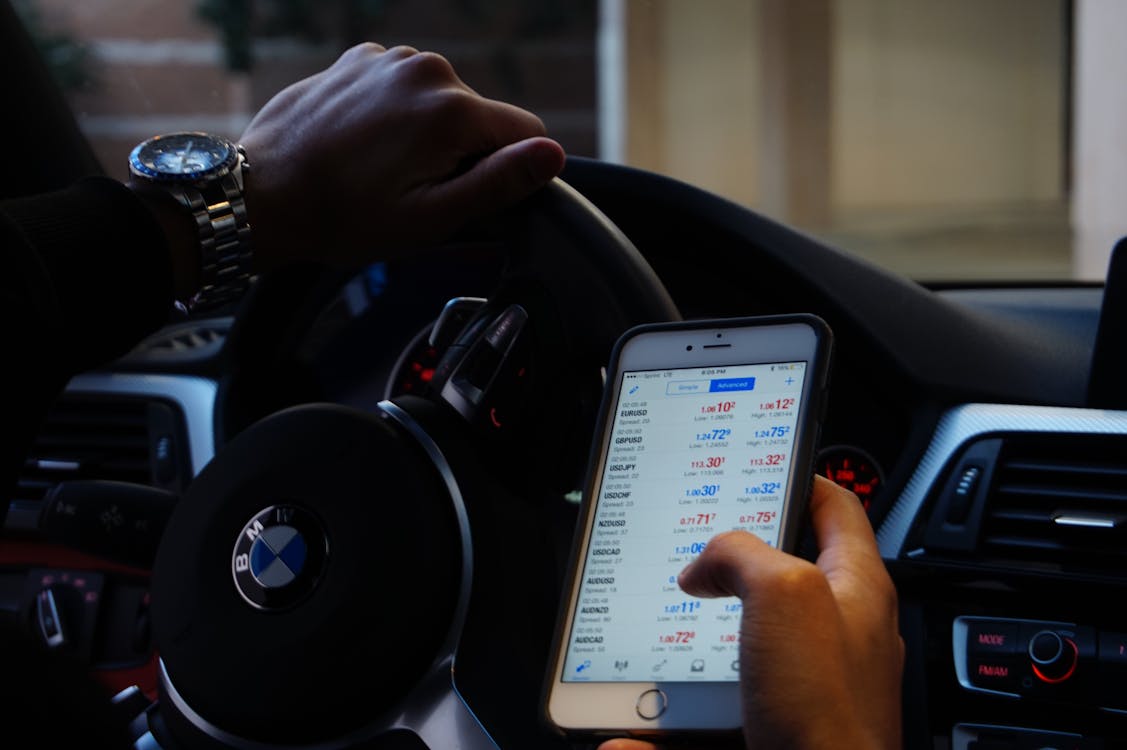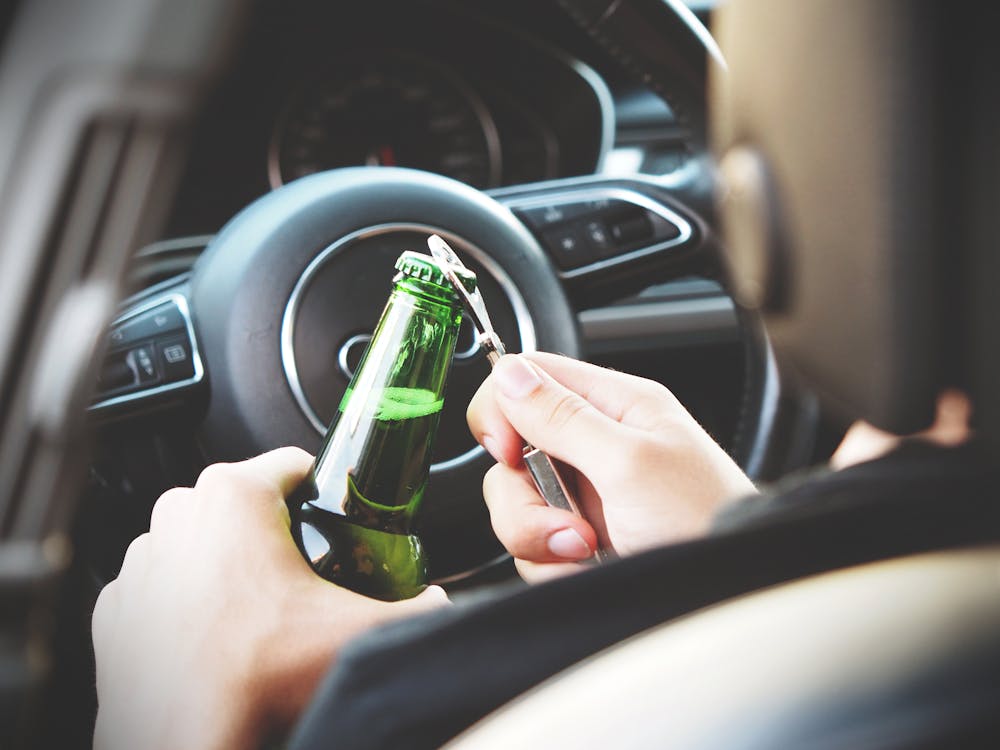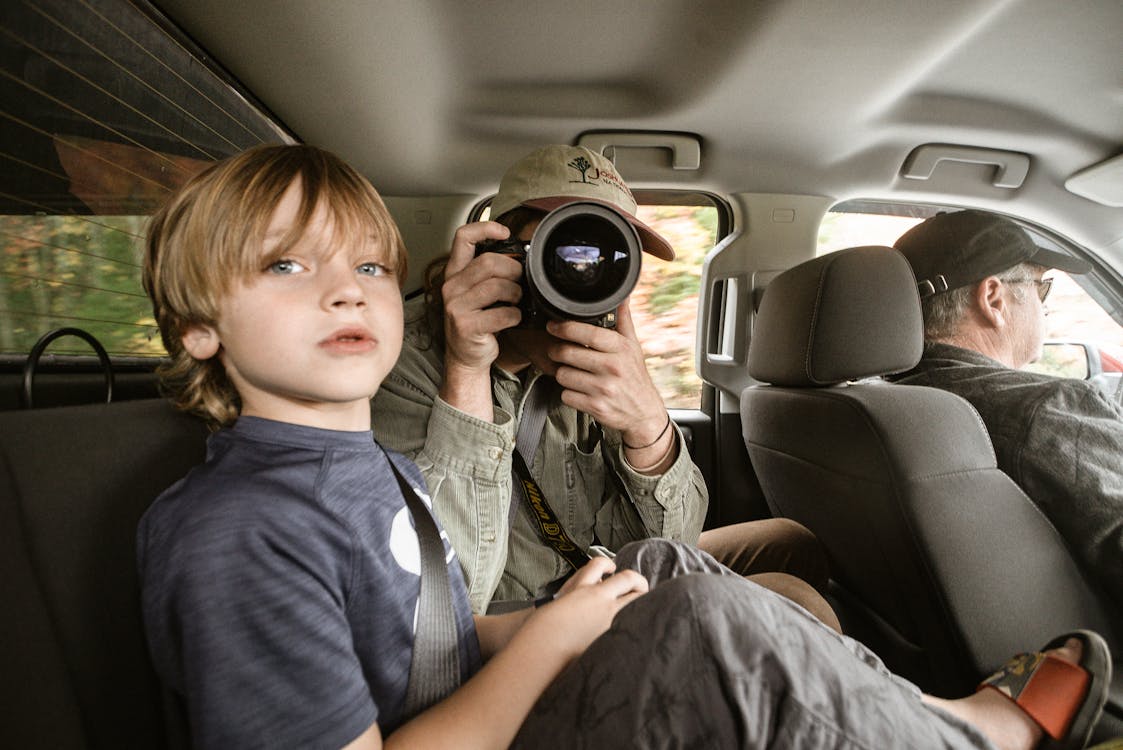23% of drivers aged 18 to 24 will have a crash in the first two years of them acquiring their licence according to figures from a road safety charity. It is also estimated that young drivers aged 17 to 19 are a third more likely to die in a road accident than drivers who are aged between 40 and 49. Young drivers have had to bear the brunt of these statistics for a long time, facing highly-priced insurance policies in comparison to older drivers – but why is it that dangerous driving is so frequently linked to younger drivers? While experience may have a part to play in why young drivers are more likely to crash than their older counterparts, studies suggest that young drivers also seem to face growing distraction whilst behind the wheel – and with distraction being the number one cause for car crashes, this is almost certain to have an effect. The dent repair and ADAS resets experts at our accident repair centre have revealed the UK’s biggest driving distractions…
Technology

Our phones are a bigger part of our lives than ever before – so it’s not surprising that there’s been a growth in the use of technology like smartphones behind the wheel of a vehicle. Young drivers are reportedly the most likely age group to use their phone behind the wheel – whether that’s phoning a family member, sending a text or updating their social media. In response to the growth in accidents caused by phone use behind the wheel, the government recently increased the consequences for drivers caught using electronics while on the road, making it illegal to use a handheld device while driving in any circumstance, and giving those caught doing so six penalty points on their licence – which is enough to get your licence revoked if you’re in the first two years of driving – as well as a £200 fine. Despite the changes, thousands of drivers have been caught behind the wheel since the new laws were implemented, leading to calls for even stricter punishments. If you find yourself getting distracted by your phone while driving, there are some things that you can do. Firstly, turn off your phone while you’re in the car, or put it on ‘do not disturb’ mode until you’re safely parked. It’s definitely also worth keeping your phone out of sight, such as in a bag or in your glove box, rather than on the seat next to you or in your pocket. While you might be keen to reply to that text as soon as possible, our ADAS resets experts know that it can only take a second of distraction to cost you or someone else their life – so make sure you’ve pulled over safely before using your phone.
Alcohol and drugs
200 people are killed in drink-driving accidents a year in the UK, according to statistics, highlighting that it’s still a very important issue on our roads. Similarly to texting and driving, there are penalties if you are caught driving under the influence of alcohol – including an unlimited fine, up to 6 months in prison and a driving ban for at least a year. Despite these penalties, drink-driving remains a huge issue – but getting behind the wheel while drunk can easily be avoided. If you know you’re driving, avoid alcohol altogether – whether that means choosing an alcohol-free alternative or turning down a trip to the pub. If you need to drink, look at alternative ways of travelling, such as getting public transport, a taxi or even finding somewhere to say overnight until you are sober and therefore fit to drive. While drinking might seem like a good idea at the time, if you cause death through drink-driving, you could be facing 14 years in prison – which hardly seems worth it for just a few beers.

Similarly, you should not ever drive under the influence of drugs, even if they’re prescribed drugs. If you are taking prescribed drugs, you should take advice from your doctor and read the instructions before you drive. If you’re caught doing this, you can potentially be subject to a prison sentence, driving ban and a fine.
Peer pressure
It’s exciting when you pass your test and can finally drive yourself everywhere, so it’s natural you might want to take your friends out for a ride to show off your new skills. However, peer pressure is another factor in the increased danger for young drivers when out on the road. Peer pressure in the car can also include being encouraged to drive aggressively, perform dangerous manoeuvres as well as ignore traffic lights and road signs. All of these increase the likelihood of drivers to be involved in an accident, and can also increase the impact should an accident take place. For example, if you travel at 40mph in a 30 zone and collide with a pedestrian, they are four times more likely to be killed than if you were travelling at 30mph. While it might seem important to impress your friends in the car, remember that you’re the one in the driver’s seat, and you’ll be the one dealing with the consequences should an incident occur. If your friends continue to pressure you, explain to them that you’re the driver and you’re choosing to drive safely – or simply don’t let them into your car if you know that they are going to pressure you. Breaking the speed limit or driving dangerously might seem impressive – but losing your licence or causing a potentially fatal accident certainly isn’t.

Passenger distractions
Peer pressure isn’t the only issue with having your friends in your car – having passengers can bring multiple other distractions. It has been reported that teenage drivers are six times more likely to have a serious incident when there is loud conversation in the vehicle, suggesting that passengers can impact your driving – even if it’s just talking with them, rather than being pressured into unsafe driving. Of course, you shouldn’t feel that you can’t have passengers in your car – but just be aware that having them there can create new distractions. Ensure that you keep your focus on the road rather than your friend sat next to you – and if you have disruptive passengers, ask them to be quiet and respectful in order for you to focus on driving safely. If you’re new to driving, it’s perfectly normal to make mistakes. However, it’s also your duty to ensure that you are driving as safely as possible and overcoming all the potential distractions out on the road – whether that’s drink, passengers or your mobile. Your safety, and the safety of those around you is the most important thing, therefore remember that whenever you’re in your car and distraction tempts you.
Use Jenkins & Pain, Award-Winning Accident Repair Centre
There you have it, if you do find yourself with damage to your beloved paintwork, plasti dip or steering alignment and need a dent repair, van body repair, ADAS resets or vehicle wrapping you can count on us to complete all jobs using industry-standard processes. We offer free quotes and with our exclusive repair service, we are sure you will be happy with the results. Contact our Vehicle Body Shop today. Jenkins & Pain are an accident repair centre based in Dover, Kent. We are proud to call ourselves an award-winning accident repair centre. Check out our guide on how to look after your alloys!
Ready to Visit Our Vehicle Body Shop?
We understand how costly and inconvenient it is for a vehicle to be off the road and, therefore, we use processes that ensure your vehicle is repaired quickly and efficiently. So, whether you need minor scratch repairs, major body repair, our van body shop and car body shop can guarantee a high-quality service. We also repair light commercial vehicles and motorhomes. Contact us today for a paint repair at our Car Body Shop! Did you know we are also award-winning!


